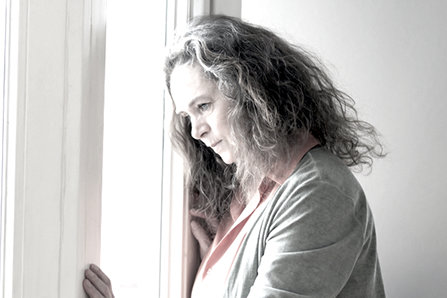Senior Citizens and Drug Addiction

As the drug addiction crisis of 21st century America continues to expand and grow, no demographic has been completely safe from the crippling grip of addiction. Even demographics that would not normally be associated with drug abuse have fallen prey to addiction problems. Even senior citizens, Americans of the age of fifty and above, are falling prey to drug abuse problems.
According to research done by the National Survey on Drug Use and Health, drug use trends amongst Americans ages fifty to sixty-four increased from 2.7 percent in 2002 to 6.0 percent in 2013. While that might not seem like a significant percentage of overall seniors addicted, let’s not forget that such an increase is a more than one-hundred percent increase, all in under a decade. It is something to be concerned about.
And when it comes to substance abuse amongst senior citizens, it is not just drug use to be concerned about. There is also the factor of senior citizen alcohol abuse. This is a big problem. The National Institute of Alcohol Abuse and Alcoholism indicates that persons over the age of fifty-five should not have more than seven alcoholic beverages per week. The NIAAA also indicates that such individuals shouldn't have more than three alcoholic beverages in one sitting. As one can imagine, millions of seniors drink alcohol at a rate well above this recommended level.
Factors that Contribute to Senior Drug Use and Alcoholism
One of the key factors that contributes to seniors suffering from addiction is simply the fact that this demographic is exposed to more addictive pharmaceutical drugs than any other demographic in the U.S. is.
Benzodiazepine use is drastically on the rise amongst the senior demographic. In an article called, “Killing Pain: Xanax Top Charts” published in MedPage, author Kristina Fiore discusses the rampant upsurge of benzodiazepine use:
“From 2003 to 2009, the two prescriptions drugs with the highest increase in death rates were oxycodone (264.6%) and alprazolam (233.8%). Therefore, benzodiazepines have a significant impact on prescription drug unintentional overdoses second only to the opioid analgesics…”“From 2003 to 2009, the two prescriptions drugs with the highest increase in death rates were oxycodone (264.6%) and alprazolam (233.8%). Therefore, benzodiazepines have a significant impact on prescription drug unintentional overdoses second only to the opioid analgesics. The combination prescribing of benzodiazepines and opioid analgesics commonly takes place. The pharmacokinetic drug interactions between benzodiazepines and opioid analgesics are complex. The pharmacodynamic actions of these agents differ as their combined effects produce significant respiratory depression.”
This information is especially prevalent in senior citizen drug use. Seniors are very frequently put on benzo drugs and opioid pain reliever drugs in tandem, and the results are almost never “good” or in any way pleasant. In fact, this is actually a wicked combination that should never be any patient’s (or doctor’s) first choice.

Financial Insecurity is Prominent
Financial insecurity is another factor. Financial insecurity is a significant source of stress, and few demographics experience financial insecurity as much as seniors do. Sure, younger people do experience financial insecurity to some degree, but this problem is a lot more stressful for older men and women who are already out of their prime working ages and who are trying to figure out how to live the rest of their lives off of retirement income, savings, and investments.
Sadly, hard work in one’s adult life no longer guarantees rest and stable finances in one’s senior years. Lower wages (when compared to inflation), less money in Social Security, pension plans being reduced, and retirement options not being nearly as amicable as they once were, all of this creates very stressful situations, situations that can lead to substance abuse. When a senior citizen struggles with fiscal instability, they will often turn to the booze or the pill bottle just to help “cope” with those financial fears.
Having to Take Responsibility for Other Individuals Adds Unnecessary Weight
The seniors of today are in quite a predicament. Because Americans are living longer than they once did many decades ago, senior citizens often find themselves taking care of their parents. It is not at all uncommon for seniors in their sixties to be caretakers for parents who are in their eighties or nineties. This can bring on an entirely new bevy of stress and complication to the lives of senior men and women.
And this is only half of the problem. We can’t forget about the millennials. The millennial generation has the highest proportion of young adults still living at home than any other generation in recent history has. Millennials are notorious for coming back home to live with mom and dad, or even with grandma and grandpa. When seniors are responsible for caring for their own parents and their millennial children or grandchildren, the overwhelming responsibility on an individual who should not have to carry that burden can often be enough to turn that individual to the bottle or to the drug packet.

Loss Can Be a Primary Factor Too
Many physicians, therapists, counselors, and even philosophers have theorized that the greatest struggle that human beings will ever face is the struggle of loss. Experts extrapolate that the sensation of loss is simply the worst feeling or sensation that most people will ever have to contend with. Unfortunately, this phenomena is all too commonly experienced amongst seniors, most who lose a spouse, a sibling, a parent, or even a child, all at some point in their span of years between age fifty and age seventy. Such a terrible loss is often enough to push a senior over the edge and to cause them to self-medicate with drugs and alcohol in an effort to drown out the emotional and spiritual turmoil of losing a loved one.
How to Reduce the Prevalence of Senior Drug Abuse and Alcohol Addiction
We need to make excellent care and superb living for seniors a priority. After a life of hard work and accomplishments, one should not have to live out their remaining years in a poor state of existence. This is by no means the right position to approach life from.
The family members and loved ones of seniors need to ensure that seniors do not suffer unnecessarily with difficulty and strife. There is absolutely no reason why such individuals should have to face such frequent crisis as that. “Sharing the load” of responsibly and obligations should be top on the mindset of any family.
Physicians can also do a lot to reduce the prevalence of substance abuse amongst seniors. Physicians need to understand that much of the drugs on the market today are very addictive (opioids, benzos, etc.) and that prescribing such drugs to seniors does far more harm than it does benefit. Physicians need to recommend natural remedies as often as possible for the various physical problems that seniors often face. Physicians need to recommend counseling and real-life solutions for helping seniors to address the various personal, mental, spiritual, or behavioral strife that comes with one's aging years.
Last but not least, the seniors themselves also need to take care to not have much of anything to do with drugs and alcohol. Drugs and alcohol are bad news for seniors. It has always been that way and it probably always will be. Seniors are more adversely affected by drugs and alcohol than adult demographics are. Seniors need to keep these factors in mind, and they need to take care to live nothing but sober, clean, and healthy lifestyles.
Sources:


